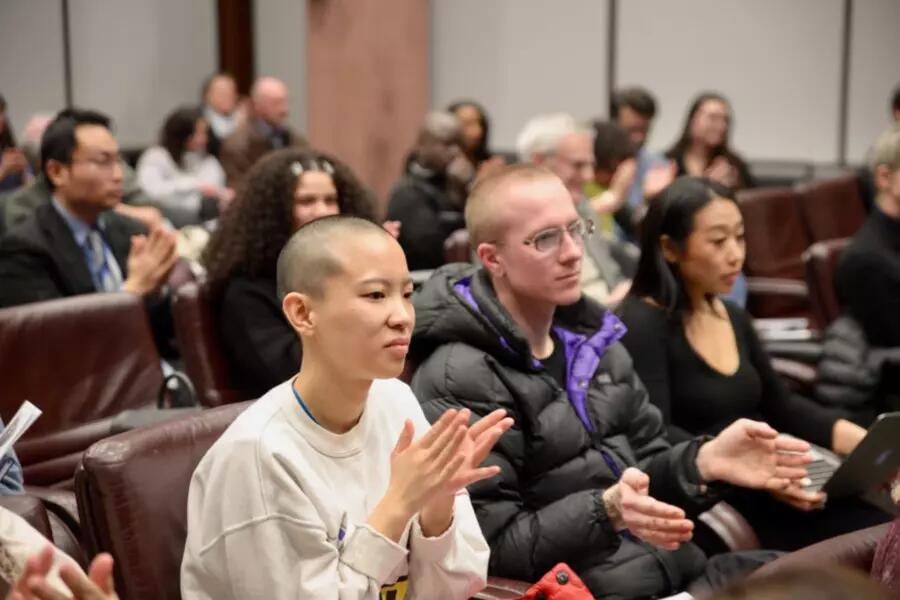By Jonah Toth
The PCJ Conference is an annual event that brings together the PCJ community outside of the classroom for an opportunity to learn about a timely and pertinent issue from leading academics and community leaders. Organized by a team of PCJ students, the conference is a major event in the extracurricular life of students in the PCJ program and U of T more broadly.

An incredibly interdisciplinary and diverse program, PCJ’s core courses explore everything from the genocide in Rwanda to community driven development programs in the Philippines. However, the global focus of the program often excludes discourse regarding domestic issues of peace, conflict, and justice – most notably concerning the relationship between the Canadian settler state and Indigenous nations. For this reason, when deciding on a topic for the 2020 PCJ Conference, a focus on Indigenous rights and reconciliation was an obvious choice.
While the conference was hosted at the Campbell Conference Facility at the Munk School of Global Affairs & Public Policy, our goal was to stray away from the standard, Western model of an academic conference and create a platform for Indigenous academics, community leaders, and traditional knowledge keepers to guide the discourse.

On the evening of Friday, January 31, students in the PCJ program and members of community joined us for a traditional opening by Elder Cat Criger, the Aboriginal Elder-in-Residence at UTM, followed by the keynote address by Professor Brenda Wastasecoot from the Centre for Indigenous Studies. Professor Wastasecoot shared her personal story about growing up in Northern Manitoba and her journey as an Indigenous person. The evening concluded with conversations and delicious food from Nish Dish, an Indigenous catering company in Toronto.
On Saturday, February 1, the whole day was filled with incredible panel discussions organized around five key themes: Cultural and Language Rights, Land and Environmental Rights, Treaty and Legal Rights, Indigenous Women, and Economic Empowerment. Speakers in each panel brought such incredible knowledge and experience to the discussions to share with conference attendees. Perhaps most meaningfully, each panel involved a Q&A session to allow for interaction between the panelists and the audience.

Personally, as a settler and uninvited guest on this territory, the conference taught me a great deal about my role in advancing reconciliation. I was struck by a statement made by one of the panelists: “I can raise myself up. The question is whether you are prepared to make space for me.” While reconciliation involves both parties, my takeaway was that the onus is largely on settler populations to dismantle oppressive systems, challenge stereotypes, and stop advancing paternalistic neo-colonial programs. This is how reconciliation can truly be achieved.
Our hope for the 2020 PCJ Conference was that attendees not only left with new knowledge and appreciation of current Indigenous issues, but with a greater understanding of their place within the Canadian-Indigenous context and with an idea of their own, personal ‘Calls to Action’ on how they can support reconciliation efforts. From some of the conversations we had with attendees after the conference, it certainly seems that we moved towards that goal.
